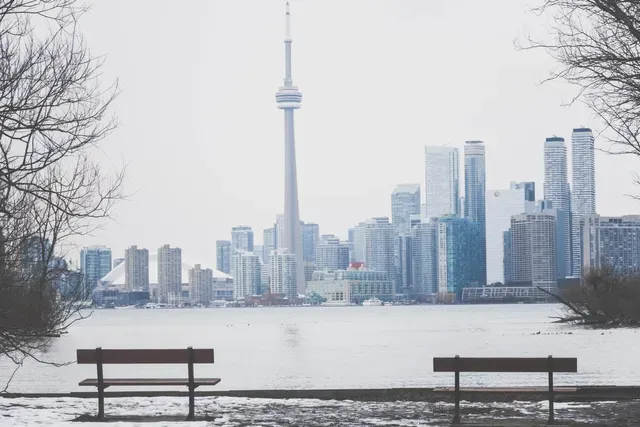Part 2 - What the Bank for International Settlements said about monetary policy in its annual report
July 4, 2019
Erik Fertsman
As was the case last year, the BIS report this year contains ideas and steps that require the involvement of non-central bank institutions. Specifically, the report calls for policies that coordinate between central banks, finance ministries, and other stewards of the economy like private banks. Have we seen much coordination between central banks and finance ministries? Not really, just a lot of friction instead. But the coordination the BIS is recommending is not what you'd expect...
How the BIS thinks folks should respond to economic growth issues
Shifting away from a focus on monetary policy
For things to improve in the global economy, the BIS believes the current "policy mix" needs some ingredients shuffled around and some new ones tossed in. One of the overarching themes for the Basel-based institutions has been to push for a shift away from monetary policy. In their words:
Higher sustainable growth can only be achieved by reducing the reliance on debt and reinvigorating productive strength. In the process, this would relieve some of the burden monetary policy has been bearing since the GFC and avoid the expectation that this policy can be the engine for sustainable growth. Its more appropriate role is that of a backstop, given that its main focus is delivering price stability while supporting financial stability.
Unfortunately, the BIS is dreaming if it thinks you can “only” get economic growth and “productive strength” by reducing reliance on debt. Actually, the only way you can get economic growth is
through debt. Central banks don't create money (by purchasing assets or issuing physical bills) that never has to be repaid. They are obsessed with their balance sheets, and constantly stress the need to wipe them down via destruction of the wealth they created after the job is done.
But economic growth and total bank assets (loans) are positively correlated. In many cases, debts issued often end up being repaid for decades, if not longer. It doesn’t matter what the interest rate is, and it doesn’t matter if you end up with highly leveraged folks and companies. This is just how it works. The report continues:
Indeed, since the GFC, monetary policy has found itself in a complex position. After fighting the fires of the crisis, it took over – successfully – much of the burden of supporting the recovery. But given the persistence of economic weakness and, even later on, an inflation rate stubbornly below objectives, interest rates have been kept unusually low for unusually long, and central bank balance sheets have ballooned. As a result, the room for policy manoeuvre has narrowed considerably.
It may be a bit much for the BIS to conclude that monetary policy "successfully" supported economic recovery after the financial crisis. Europe is still shrinking ten years later. But pay attention to how the BIS described "economic weakness" in relation to low inflation and interest rates. They are convinced the latter triggers economic growth or decline. Hmmm… and now they're saying they've run out of runway. So, good luck humans, for soon you will no longer even have monetary policy to lean on. And you know what? They're probably right. We have to focus on something else now...
Reconfiguring debt as an instrument of growth
After highlighting the limitations of monetary policy, the report dives into the issues between debt and growth. Interest rates are perplexingly low, right? This is bothering the BIS and causing the organization to fret about what this could do to debt burdens:
Moreover, the very low rates, which prevail even as economies are hovering around potential, have contributed, in part, to some of the financial vulnerabilities we now see..., this points to the possibility of some delicate intertemporal trade-offs. Depending on circumstances, it is possible that actions that yield clear benefits in the near term may risk generating costs in the longer term. One such example is the relationship between low interest rates and short-term economic activity, on the one hand, and risktaking and debt accumulation over the longer run, on the other.
Maybe interest rates should
be low or “free” for productive GDP-related purposes, while consumption borrowing on goods like cars, homes, and so on, should carry higher costs. To be honest, people should be able to afford purchasing homes and cars on their salary, not based on their FICO scores. Better yet, why not make credit available and guided toward "things" that will spur productivity? It's been done before like in post-war Japan under something called “window guidance.” Start thinking in terms of a post-war economy, and you’ll get somewhere.
Another is the high sensitivity of financial markets to policy tightening once they have grown dependent on prolonged monetary policy accommodation. In turn, both of these factors can potentially reduce the future room for manoeuvre and complicate normalisation. Central banks are fully aware of these delicate and complex tradeoffs. Central banks and other authorities have implemented policies to reduce the possibility of adverse future outcomes. Notably, they have adopted far-reaching financial sector reforms. So far, adverse outcomes have been avoided, but this does not give licence for complacency, including with regard to monetary policy.
Interest rates or central bank normalization is the least concerning for fund managers if it means making way for growth. If advanced economies are going to experience “japanification,” which is what is currently on the horizon, then you’ll get a repeat of the Nikkei at some point. The Nikkei is Japan’s stock market, which still hasn’t seen its all-time-high from 30 years ago.
Instead, fund managers need more money coming in than what is going out. They need deposits to play with, which are initially created through the banking system in the form of loans. They need more products (companies) to invest in. They need trained talent to come work for them. And, they need rules that prevent them from getting into something illiquid and scary in order to squeeze out a few extra percentage points of yield.
So regulators really do
need to sit down and have a think, together with allied agencies, to reconfigure the debt markets - starting with banking reform. They need to do this together with the private banks. If the banks don't comply then you force them into submission. It's the only way to generate growth in the stock market once there is sufficient access to credit for GDP-related transactions. Push out window guidance if you need to.
Embracing the spirit of economic development found in emerging markets
Something that I found a bit ironic in the BIS report was that they think advanced economies should follow in the footsteps of emerging economies when it comes to implementing a new “policy mix.” I mean, these are the same emerging markets who’ve borrowed and suffered under the IMF austerity diet - an institution funded and tailored by the advanced economies.
What's more, these are the same advanced economies who bullied their emerging counterparts into disadvantageous trade, social, and foreign policies. The report wrote:
EME central banks have been contending for some time with a complex environment… The specific challenge in this instance results from the high sensitivity of these economies to global financial conditions: waves of capital flows and exchange rate pressures can put a strain on these countries’ balance sheets. As a result, much as when a number of advanced small open economies pioneered inflation targeting, monetary policy practice in EMEs has moved ahead of theory. Rather than strictly sticking to inflation targeting with freely floating exchange rates, the vast majority have combined it to varying degrees with foreign exchange intervention. And all of them have complemented it with the active use of macroprudential measures. That way, they have gained a measure of freedom to better reconcile price and financial stability over the medium term.
Instead of achieving inflation through currency devaluation (to spur spending and make it easier to pay-down credit), you simply need the banks to strategically pump-out credit. Get wages up, get productivity up, get well-being up, and get standards of living up. Don’t create asset bubbles. The side effects of currency devaluation is too great.
If you really want to slam your currency, just generate a pile of non-performing loans, like Ukraine did. A simple accounting change will do the trick. Then all those elites who borrowed a ton of credit at low interest rates, promising economic development but instead escaped offshore, will get away like bandits. Maybe you get the point: currency devaluation is a terrible thing when done quickly and through intervention. It needs to be slow and random.
Reducing financial systems to global exposure
Aside from the limitations of monetary policy, a distaste for debt-fueled growth, and wanting to see advanced economies borrow strategies of economic development from their emerging counterparts, the BIS thinks banking systems are far too exposed to each other. They write:
At a more structural level, the key challenge is to develop domestic financial systems so as to reduce the sensitivity to global financial conditions in the first place. The experience of EMEs showcases one way to achieve a more balanced policy mix. This is having a strong prudential framework, with respect to both micro- and macroprudential dimensions: dealing with individual institutions and the financial system as a whole, respectively. With primary reference to the microprudential dimension: now that most of the post-crisis financial reforms are in place, the key challenge is their full, timely and consistent implementation.
I guess if you’re gonna scrap trade agreements, you could just as easily scrap cross-border payment agreements, and heavily regulate foreign exchange markets. One of the problems, though, is that banks are global giants now, who have massive cross-border operations. That being said, fiat currency never leaves the banking system in which it was created, just like bitcoin never leaves the bitcoin network. So, it’s enough to block the exchange markets if you want to isolate financial cross-pollination.
But you’d have to account for this rolling-back of the neoliberal paradigm. Many industries are bloated, and overvalued by foreign actors who go to the FX markets, exchange a ton of currency, and then pile it into whatever. By restricting these actors you could cause price volatility - price stability is the mandate of all central banks. Moreover, far too many humans are now dependent on the liberal world order. Many survive purely on remittances and cheap foreign goods made possible by the open and interconnected global system.
The role of government spending in economic development
So, if you move away from monetary policy, further limit debt-fueled growth, embrace foreign exchange intervention, build barriers to your banking system in terms of a policy of financial containment, how do you compensate for spending issues? You get government to pick up the tab! It's beginning to sound like the New Deal...
One reason why public sector debt-to-GDP ratios have been increasing at the global level is precisely the asymmetrical use of fiscal policy, increasing deficits during contractions but failing to consolidate during expansions. Hence the reduced room for policy manoeuvre compared with precrisis. But the most important set of policies is structural. Hard as it is politically, it is essential to revive the flagging efforts to implement policies designed to boost growth.
Some government spending is, of course, necessary. If we did everything in the name of profit, we wouldn't have a lot of things like roads, parks, community centers, emergency response, and so on. However, using government borrowing and spending capacity will only get you so far. Who's gonna bail out the government when it goes bust?
If you believe in the BIS's recommendations, start reining in monetary policy, curtailing debt-fueled growth (rather than directing debt toward the right places), embracing currency interventions, restricting cross-border finance, and then, start unloading the government's checkbook, the strategy eventually works against itself. What the BIS is advocating for is just another boom loop.
Putting up borders on finance also impedes the economic autonomy of individuals - a core principle of western liberal democracy. Maybe, the BIS is not on-board with those values or doesn't realize the impact its recommendations would have on the political fabric of western societies. But that's a loaded thing to think about.
An alternative to all of this, is to enhance the focus on monetary policy and debt-fueled economic development. Prime the private banks to do the heavy-lifting in the form of lending-as-a-public-service, and get the central bank to bail them out when they go bust after heavily competing against each other. What ought to be done is, together with the finance ministry, the building of strategic economic development plans, while making monetary policy officials and private bankers accountable to elected politicians. This way, you get economic development through the use of credit - a near-magical human invention - and in turn keep taxpayers and public budgets healthy in the green.
SHARE THIS ARTICLE
Enjoyed this article and want to support our work, but are using an ad blocker? Consider disabling your ad blocker for this website and/or tip a few satoshi to the address below. Your support is greatly appreciated.
BTC Address: 13XtSgQmU633rJsN1gtMBkvDFLCEBnimJX



